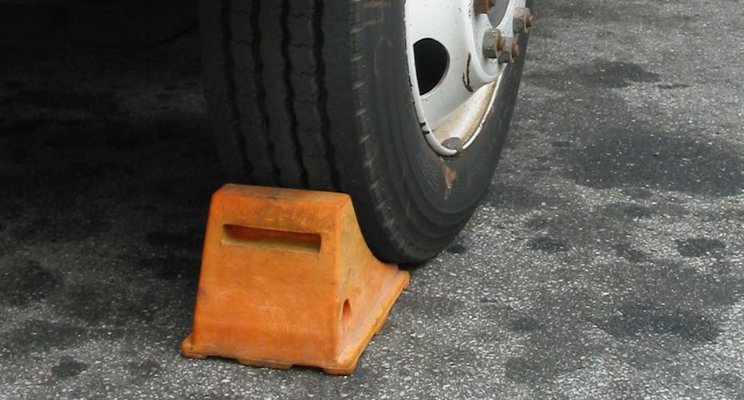When I owned my moving company, Peachtree Movers, if a driver parked his truck without using a wheel chock, he was subject to a reprimand or being fired—no exceptions. All our trucks had Allison automatic transmissions. That meant a driver could accidentally park in neutral and forget to engage the parking brake.
We learned early on that drivers hated using the heavy, “nasty,” and always damp black rubber wheel chocks. To make our policy more “user friendly” for our drivers, each truck carried two lightweight plastic chocks in the cab. They were simple to handle and easy to keep clean.
Our strict wheel chock policy was validated in 2004 in a northern suburb of Atlanta when a new moving van parked in a level cul-de-sac to do a residential move. The driver of the 3-man crew pulled up to the shipper’s house, put it in neutral, and forgot to engage the emergency brake. While he and his crew were inside the house getting their paperwork signed, the truck rolled silently backwards killing a 13-year-old boy who had his back turned towards the truck.
This accident could have been prevented if the driver had chocked his truck. He was subsequently charged with manslaughter, and the moving company—his employer—settled their case out of court.
I mention this accident every time I teach my IOMI® office moving seminar. I ask my students the same question, “Do you always use a wheel chock when you park your trucks?” I’m sorry to report that most of them do not. I’m told they don’t own chocks and probably wouldn’t use them if they did because there are no hills in their market.
What is your company’s policy concerning using wheel chocks? If you don’t use them, would you consider adopting and implementing my policy? I hope and pray that you will.
For more information on our online office moving training, please visit www.officemoves.com/training/index.html or call Ed Katz at 404.358.2172.










